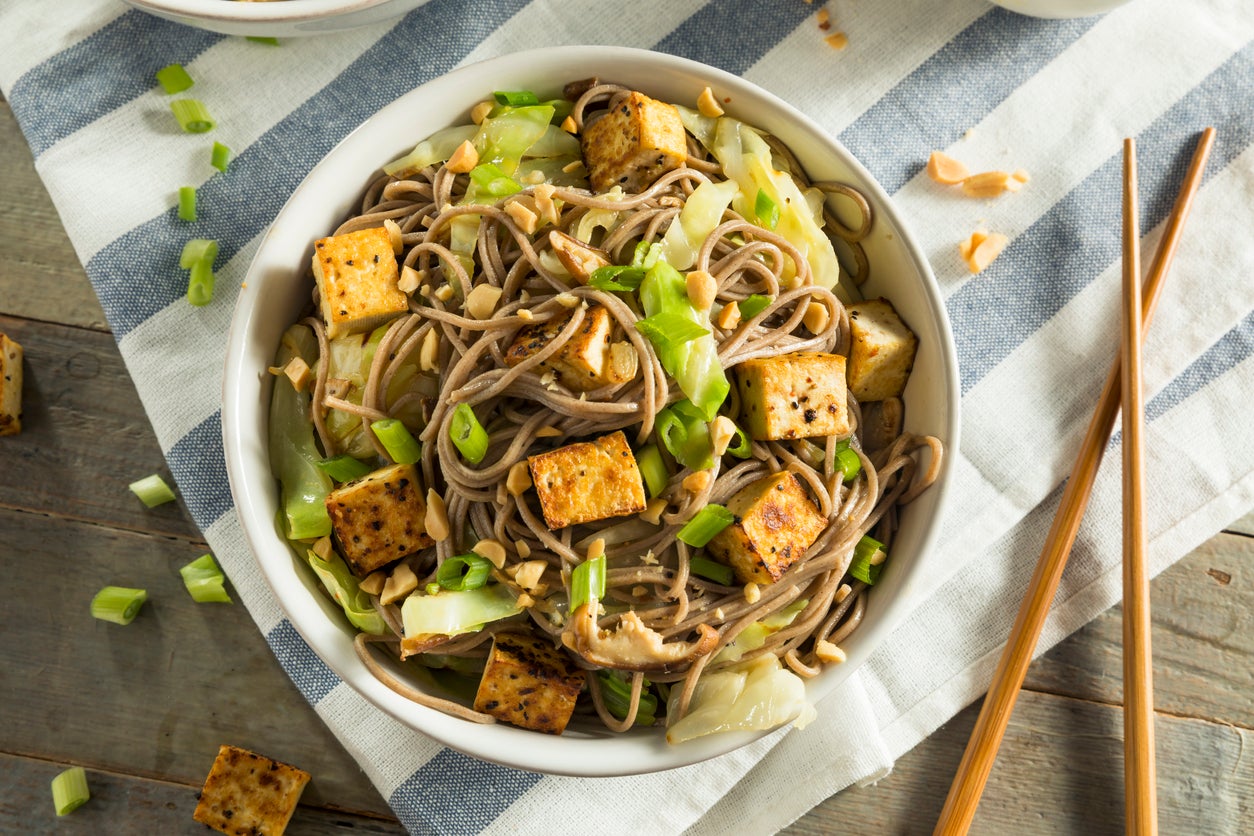Nutritionist reveals truth about health benefits of soya foods
Do we need to be mindful of how much we're consuming?

Your support helps us to tell the story
From reproductive rights to climate change to Big Tech, The Independent is on the ground when the story is developing. Whether it's investigating the financials of Elon Musk's pro-Trump PAC or producing our latest documentary, 'The A Word', which shines a light on the American women fighting for reproductive rights, we know how important it is to parse out the facts from the messaging.
At such a critical moment in US history, we need reporters on the ground. Your donation allows us to keep sending journalists to speak to both sides of the story.
The Independent is trusted by Americans across the entire political spectrum. And unlike many other quality news outlets, we choose not to lock Americans out of our reporting and analysis with paywalls. We believe quality journalism should be available to everyone, paid for by those who can afford it.
Your support makes all the difference.There are seemingly endless myths surrounding soya foods, with some people maintaining they’re a healthy food to include in a plant-based diet and others ardently arguing they’re bad or even poisonous for you.
From soya milk and miso to tempeh and tofu, soya-based foods are no longer just a mainstay of Asian diets but are now staples in supermarkets around the world.
The soya bean - which is the most widely cultivated legume in the world - has long been considered an essential part of vegetarian and vegan diets in particular, being used to create meat and dairy alternatives.
But it’s controversial, and as with most foods, there’s no clear cut answer as to whether soya is 100 per cent healthy or unhealthy.
To help clear up confusion, Harley Street nutritionist Rhiannon Lambert has busted some of the biggest myths surrounding soya foods.
The first thing to know is that soya is a good source of protein: “Soya beans are what's known as a complete protein,” the Re-nourish author wrote on Instagram.
“Unlike most plant proteins it contains all essential amino acids we have to get from food because they can’t be made by the body. A cup of cooked soya beans contains about 22g of protein, almost as much as a serving of steak!”
Lambert has also addressed the myth that men shouldn’t eat soya because they ‘cause man-boobs.’
This, she says, simply isn’t true: “Soya contains zero oestrogen and there’s zero evidence for soya disrupting sexual development or reducing men's testosterone levels.”
In fact, soya beans contain phytoestrogens, which have been found to help block side-effects of excess oestrogen in the body and help rebalance oestrogen and progesterone levels.
Phytoestrogens are plant hormones which are also found in coffee beans, apples, oats, lentils, rice, carrots and beer. “In fact, those compounds within soya are powerful antioxidants with research suggesting positive effects in protecting against diseases,” Lambert explains.
Another rumour around soya is that it can cause cancer.
“The confusion about whether soya is good or bad for cancer risk is because soya’s compounds can mimic oestrogen in the body - and some cancers grow in the presence of oestrogen,” Lambert explains.
“However, in eastern Asia where soya is consumed the most, comparatively speaking on a population level with the US, they have less breast cancer, prostate cancer and cardiovascular disease, and fewer bone fractures.”
Overall, Lambert believes you shouldn’t feel compelled to include soya products in your diet if you don’t like them, but you also shouldn’t be worried about consuming them.
“They are typically affordable, nutritious, delicious and help us to achieve an increasingly plant-based diet by reducing our intakes of animal protein which can also benefit the environment and food sustainability,” she says.
“Basically for every study that shows harm from soya or hormonal disruption, there is also a study showing benefits,” Lambert explained to The Independent.
“Personally, sticking to fermented soy products like miso and some tasty edamame beans shouldn’t cause a problem to the body and there is no need to cut it out.”
Join our commenting forum
Join thought-provoking conversations, follow other Independent readers and see their replies
Comments